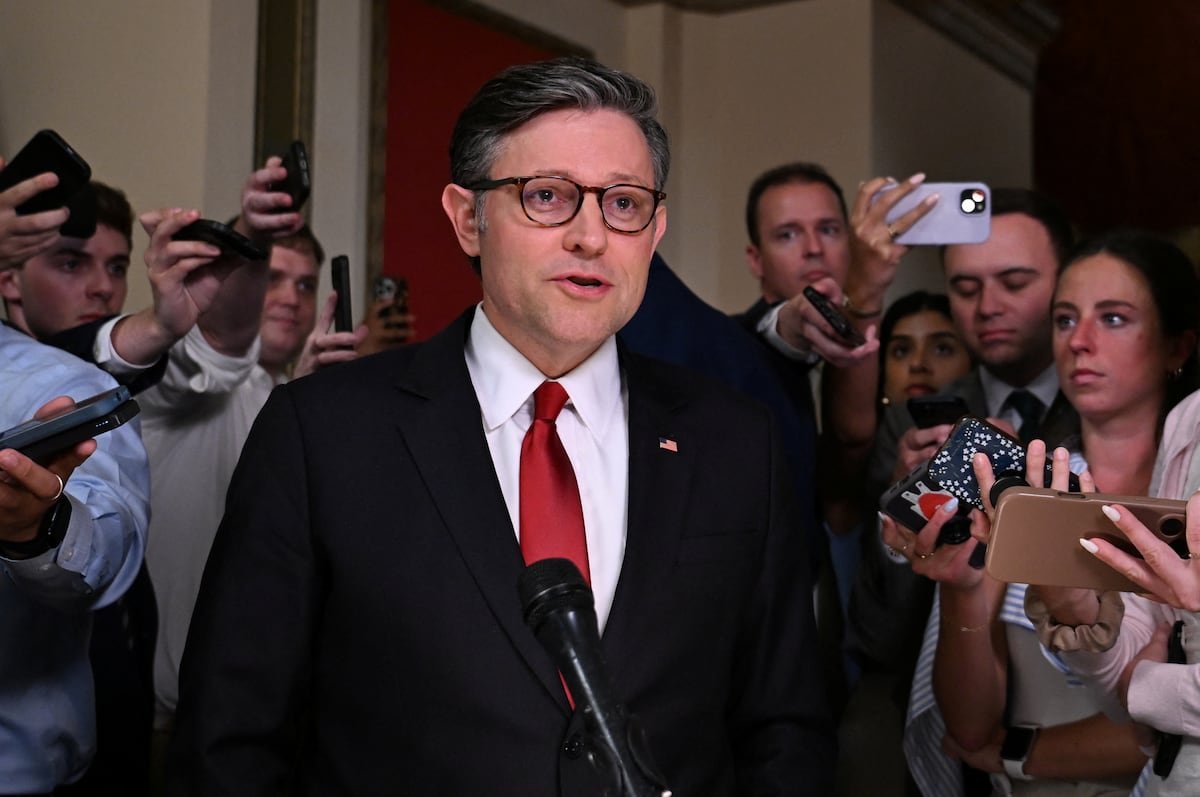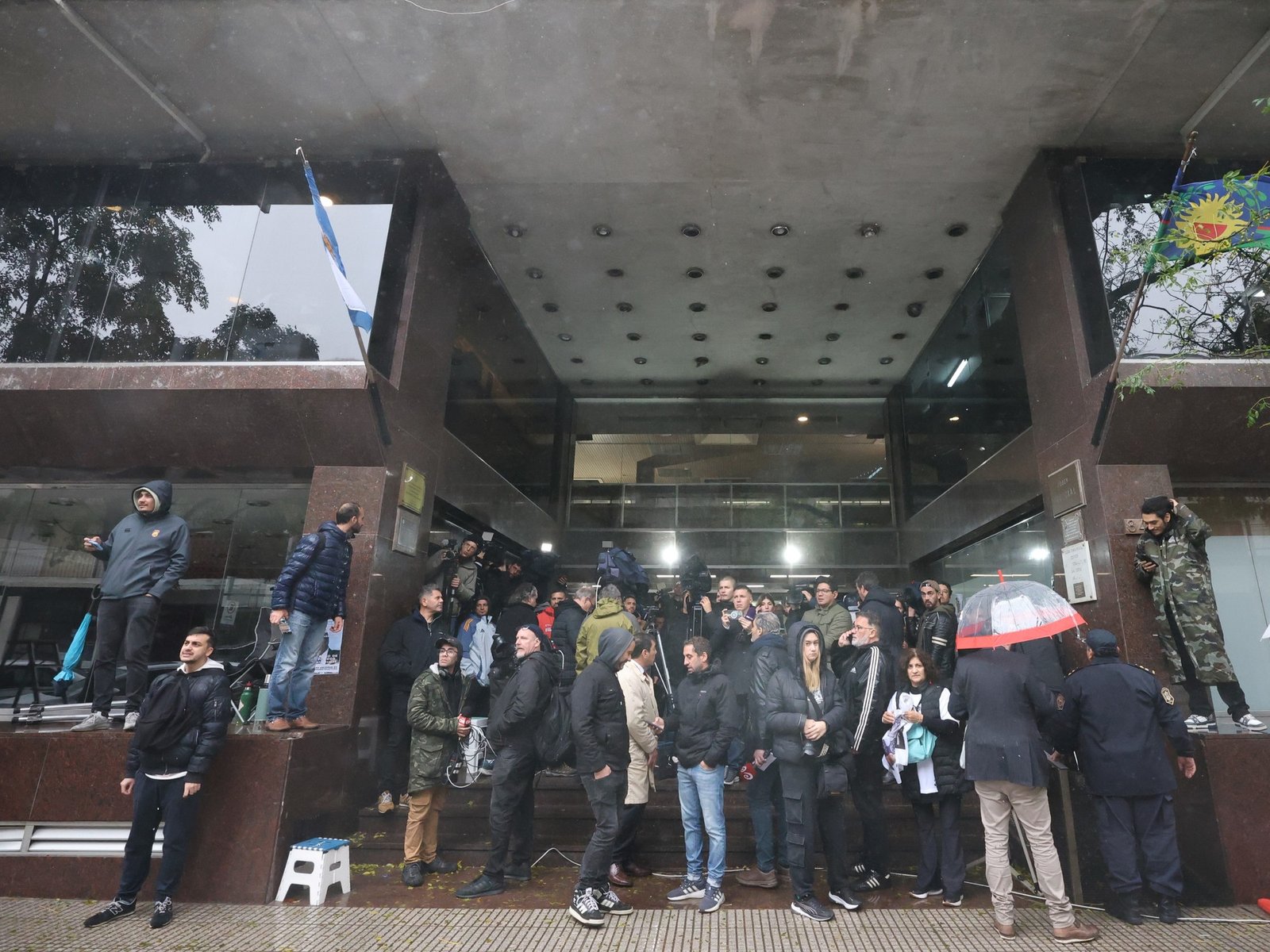It was just past 3:30 a.m. on Thursday when the House of Representatives agreed to clear the last procedural hurdle for the mega spending legislation known as the One Big Beautiful Bill Act (BBB). After a grueling vote — another one that remained open for more than six hours to persuade undecided members — they decided that the ambitious tax reform, on which Trump is pinning the success of his domestic economic agenda, deserved to enter its final phase and be resolved in the form it arrived from the Senate on Tuesday.
There was still one last episode left in this season’s legislative saga in Washington, which concluded around 2:30 p.m. Thursday. Following a nearly nine-hour speech during which the Democratic minority leader, Hakeem Jeffries, set a record for parliamentary delay, House Republicans gave the final yes to the law after months of negotiations and such significant changes in the Senate that a second review in Congress was necessary.
A total of 218 members voted in favor of a sensational $4.5 trillion tax breaks that benefit the highest incomes and penalizes the poor, while fulfilling Trump’s campaign promises such as eliminating taxes on tips, strengthening the military presence on the Mexican border, and increasing defense spending. In the end, there were 214 votes against and two conservative dissidents (four would have meant disaster): Brian Fitzpatrick (Pennsylvania), concerned about the end of certain green economy provisions, and Thomas Massie, a fiscal hawk from Kentucky.
So, the law will arrive, as the U.S. president wanted, in time for him to sign it this Friday, Independence Day. Trump had pushed for meeting a deadline as symbolic as it was artificially imposed. That members of his party complied with the deadline and, above all, approved a law that gives him free rein to undertake the major transformation of American society he has set as his goal, marks another big victory for a Trump on a roll, perched at the height of his political power five months after taking office.
The BBB also breaks some of Trump’s campaign promises: the U.S. president pledged during his campaign not to touch Medicaid, but the BBB cuts nearly a trillion dollars from that social safety net for the most disadvantaged, from the rural hospital system, and from the SNAP program, as the food stamp system is now called. Considering Trump won the election that returned him to the White House with a sleight of hand that made the Republican Party seem like the party of the working class, it remains to be seen how his supporters will react to this tax reform, which critics paint as a kind of reverse Robin Hood: taking money from the poor to give it to the rich.
Despite doubts about the political cost this tax reform might bring, conservative congressmen gritted their teeth and approved a 940-page text they barely had time to read after the Senate changes, where the law passed thanks to Vice President J. D. Vance’s tiebreaking vote after four agonizing days. In its final version, the ambitious BBB includes certain public spending red lines that many, especially members of the party’s hardest wing, said they wouldn’t cross — but in the end, they did.
According to the Congressional Budget Office, an independent body of the Capitol, the law will add $3.3 trillion to the U.S. deficit, pushing it to record post-pandemic levels. That figure infuriated the world’s richest man, Elon Musk, who used to lead the U.S. Department of Government Efficiency (DOGE). In recent weeks, Musk strongly opposed the law’s passage — so much so that it triggered a messy public breakup with Trump.
Wednesday — which began with summer storms canceling flights back to Washington for some members of the House of Representatives — turned into another nerve-wracking day at the Capitol. There were last-minute negotiations, hallway pressure tactics, public displays of defiance, and backroom deals.
Public and private pressure
Behind the scenes, Trump was lobbying undecided lawmakers with phone calls from the White House and through celebrity-doctor-turned-health-official Mehmet Oz, whom he dispatched to Capitol Hill with a talking points memo filled with anti-poor rhetoric. GOP members repeated the script on cable news: that the cuts to Medicaid, which could leave 12 million people without coverage, would only affect those who supposedly refuse to work even though they can.
Trump also used the social media weapons he wields so well. Throughout the day, he urged undecided lawmakers with messages that swung between high school pep talk (“Let’s go, team!”) and his more impatient tone: “For Republicans: This should be an easy yes vote. RIDICULOUS!” he wrote at 12:45 a.m. on Thursday, before going offline from his platform, Truth Social, for a few hours.
The heavy lifting on the floor fell to House Speaker Mike Johnson, who rushed around with his schoolboy expression and an unshakable mantra: with an omnibus bill like this, “you can’t please everyone.” In return for votes, he offered concessions — not changes to the already-final text, but executive actions favoring specific states or minor adjustments, just enough to end the agony before the Fourth of July.
What happened with the BBB in the House — where the law initially passed in May by just one vote, after another all-nighter — was another show of Johnson’s ironclad loyalty to Trump and a notable victory for the unlikely speaker. A Christian fundamentalist from Louisiana, Johnson rose to the post as a last resort, and despite low expectations, has managed to end a chaotic chapter for the GOP in the House. This week, he firmly consolidated his leadership.
Earlier, Democratic minority leader Hakeem Jeffries used a procedural trick known in Washington as the “magic minute” — which, in this case, stretched to nearly 540 minutes (almost nine hours). He took the opportunity, despite the exhaustion, to try and wear down his Republican colleagues’ patience. “As a result of the lack of health care that will result directly from this one big, ugly bill, people in America will die unnecessary deaths,“ he said. ”That is outrageous. It’s disgusting. That is not what we should be doing here in the United States House of Representatives.”
The Republicans control the House by a slim majority, slightly wider in the Senate. Not a single Democrat voted in favor of the BBB at any stage of the process — remarkable in a political system with loose party discipline — which suggests there was nothing in the 940-page bill they could justify supporting to their constituents.
Still, it’s clearly a strategic calculation. Disoriented, leaderless, drifting from their traditional base, and unsure if they can win another national election, the Democrats are betting that the consequences of this sweeping tax reform will sink GOP hopes in next year’s midterms. If they’re right, they might regain one or both chambers of Congress — and only then begin to oppose Trump in ways less theatrical and more effective than reading a marathon speech into the night.
Sign up for our weekly newsletter to get more English-language news coverage from EL PAÍS USA Edition










